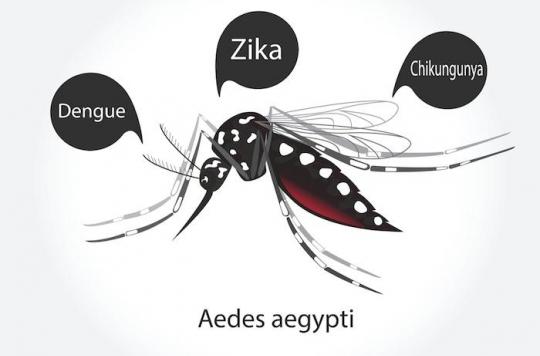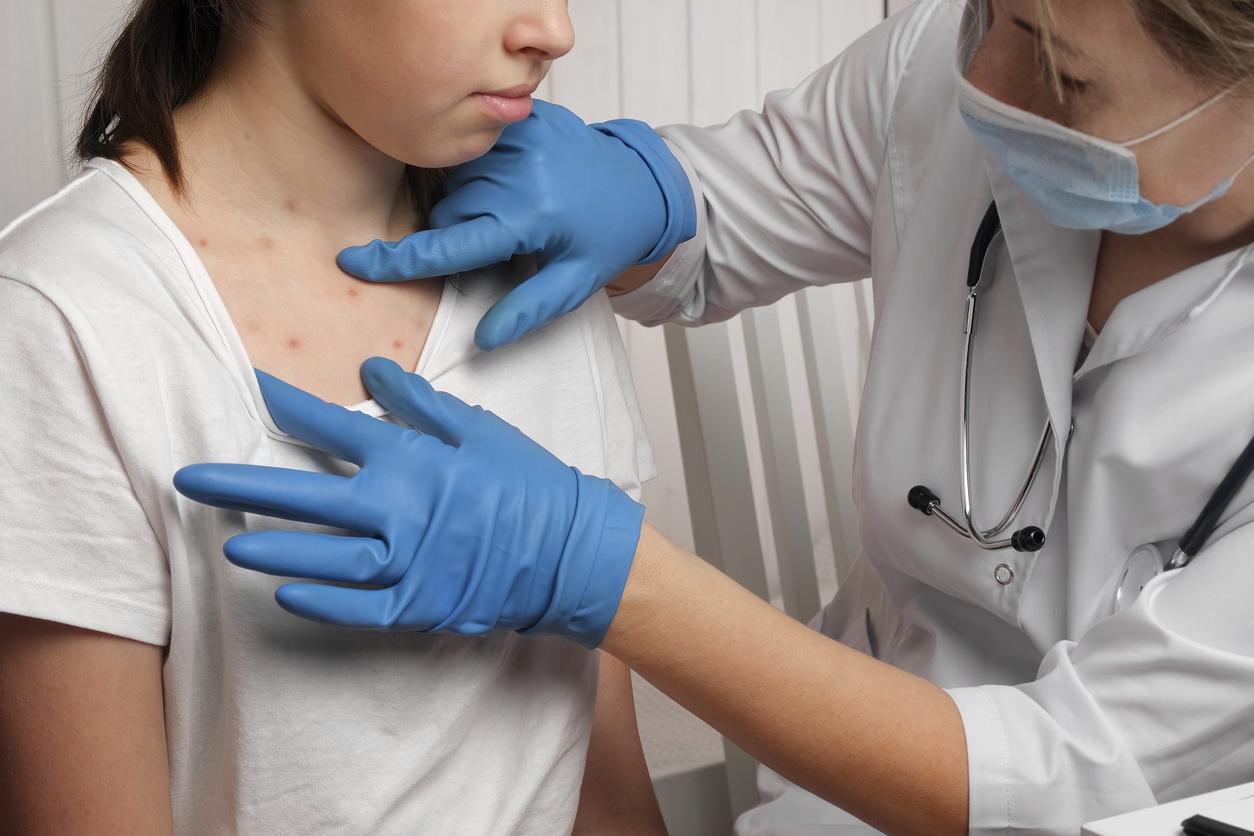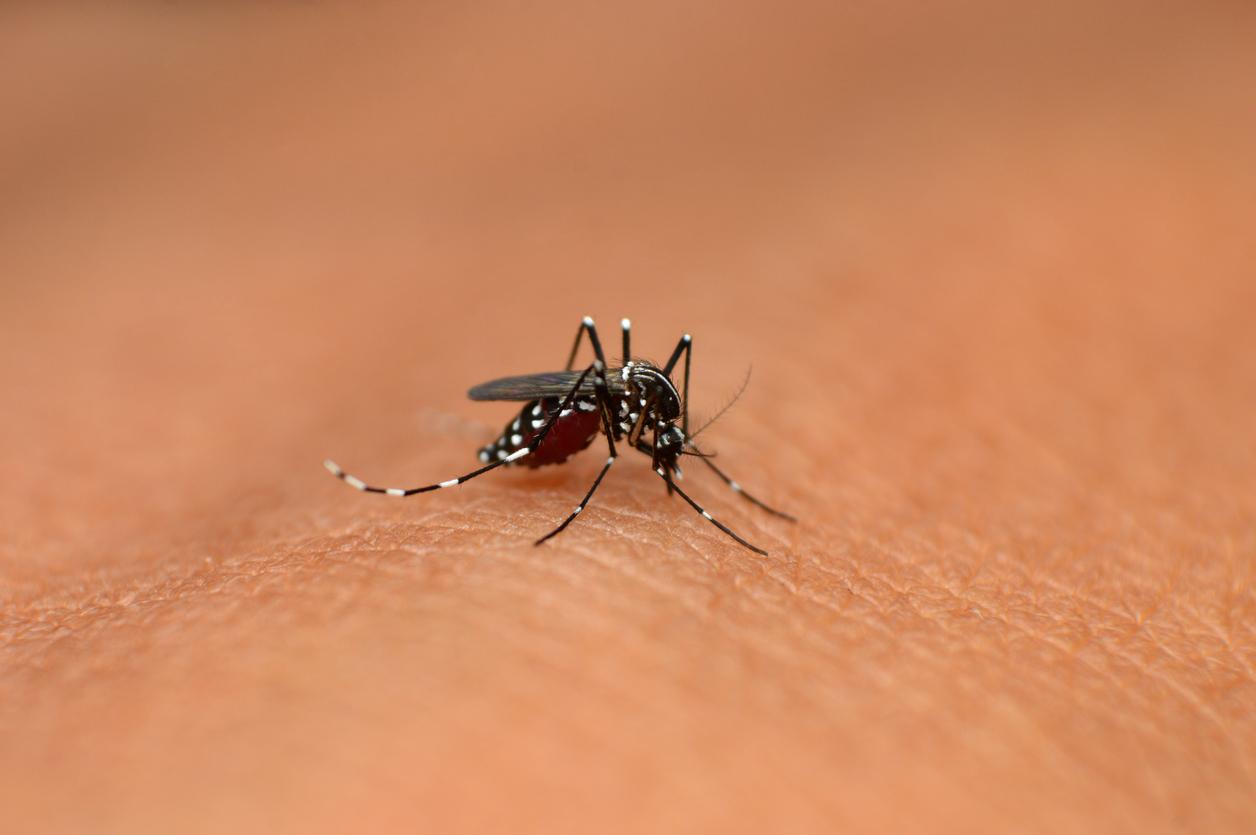A case of dengue fever imported from Benin was detected on the Ambès peninsula, in Gironde. The mayor, who had called for preventive mosquito control in the spring, does not take off.

According to EID (Interdepartmental establishment for mosquito control of the Atlantic coast), a case of dengue fever was diagnosed in Ambès, a town in the south-west of France, very close to Bordeaux. France 3 Aquitaine specifies that this is a case imported from Benin, that is to say that the person was bitten by a mosquito outside of Metropolitan France.
From May 1 to July 6, 2018, 60 imported cases of dengue fever were listed by the INVS, 22% of which stayed on Reunion Island, and 5 concerned people who live in New Aquitaine. A dengue epidemic is currently raging on Reunion Island, with 4,604 cases (biologically confirmed or probable) reported between the beginning of the year and June 12, 2018.
Deltamethrin treatment
“Last night, the first deltamethrin-based treatment was carried out by the EID teams. I wonder why the Departmental Council, the Prefecture, the ARS and the DDTM are opting for a curative and highly toxic treatment in the middle of the area. urban rather than a biological preventive treatment in the marshes, which would have made it possible to lower the vector density and thus limit the potential spread of diseases.Will this be enough for our major authorities to finally open their eyes and take into account the opinion of local elected officials?”, Indignant the mayor of Ambès, Kevin Subrenat.
A prefectural decree was taken at the beginning of the week in Gironde. He authorized during the night of Monday to Tuesday a spreading based on deltamethrin, a product which allows the eradication of mosquitoes, in a perimeter of 300 meters around the residential area concerned.
Dengue fever can be deadly
Remember that dengue fever can be fatal. In New Caledonia, a six-month-old girl has died Saturday, May 19 in the evening in Nouméa as a result of the illness, due to the deterioration of his general condition. “The infant’s parents had taken him to the Koutio Medipole,” according to a government statement. Despite treatment in intensive care, the evolution of the disease was overwhelming. Declared in New Caledonia on February 22, the dengue fever epidemic had already killed a 74-year-old woman, with no particular medical history.
Dengue fever, also called “tropical flu”, is a tropical haemorrhagic fever linked to an arbovirus, transmitted by the bite of a female tiger mosquito only. The World Health Organization (WHO) estimates the number of annual cases worldwide at 50 million, including 500,000 cases of “haemorrhagic” dengue fever, i.e. which are fatal in more than 2.5% cases. Dengue fever is initially present in tropical and subtropical areas of the world.
Dengue fever symptoms
Dengue fever symptoms appear 3 to 14 days (on average 4 to 7 days) after the infecting bite. We then observe a flu syndrome affecting infants, young children and adults. There is no specific treatment. While dengue hemorrhagic fever is a life-threatening complication, early clinical diagnosis and prompt clinical management can often save lives.
“If you are infected with measles, you are immune for life, recalls Henrik Salje, statistician and epidemiologist in the Mathematical Modeling of Infectious Diseases Unit at the Institut Pasteur. With dengue fever, it’s different. If you are infected with one of the dengue viruses, you become immune to that virus but not to the other three. get very sick.”
Vaccination strategy adapted against dengue fever
It is therefore very complicated to define an appropriate vaccine strategy against dengue fever. To achieve this, researchers from the Institut Pasteur recently decided to take a fresh look at detailed data from a cohort of Thai patients compiled between 1998 and 2003 by researchers from the University of Buffalo and Walter Reed. For this, they developed a tailor-made mathematical and statistical model. The cohort in question brings together data on 3,451 children from a rural area in northern Thailand. The latter underwent a blood test every 90 days for 5 years, which allowed the researchers to have access to their level of antibodies over time. These children also benefited from a close follow-up to find out if they presented symptoms of dengue fever.
All of this data together was then used to feed the model developed by the team and to associate, after sophisticated statistical processing, antibody levels with a higher risk of complications. “Characterizing individual risk will make it possible to monitor populations in the same way and determine when a population might be collectively at risk of having high rates of dengue fever,” said Derek Cummings, co-author of the study and professor. of biology at the University of Florida.
.

















